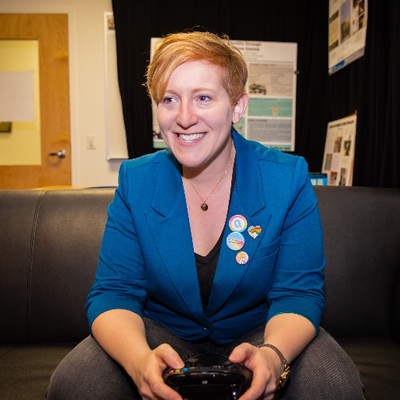Aaaaaaaaaaaand submit!
I’m excited to report that the revision of my monograph, which the editors at New York University Press have cleverly re-titled Video Games Have Always Been Queer (I’m into it), has been officially submitted. I’m feeling super grateful to my reviewers, who were both super supportive and generous–as well as constructively critical–with their feedback. The revision process took me longer than I liked, due to some medical issues I ran into over the summer, but I’m thrilled to be sending the little-queer-game-studies-book-that-could off into the world.
Here’s the very beginning of the introduction, to pique your interest. You can also check out the table of contents to learn more about what the project covers. Hopefully Video Games Have Always Been Queer will be hitting shelves spring, 2019…
Video games have always been queer. Even games that appear to have no LGBTQ content can be played queerly, and all games can be interpreted through queer lenses. This is because queerness in video games means more than the representation of LGBTQ characters or same-sex romance. Queerness and video games share a common ethos: the longing to imagine alternative ways of being and to make space within structures of power for resistance through play. From the origins of the medium, to the present day, and reaching into the future, video game worlds have offered players the opportunity to explore queer experience, queer embodiment, queer affect, and queer desire—even when the non-heteronormative and counter-hegemonic implications of these games have been far from obvious.
Through new critical perspectives, queerness can be discovered in video games, but it can also be brought to games through queer play and queer players, whose choices to engage with games on their own terms and for their own pleasures can profoundly transform the meaning of games and unleash their queer potential. In this way, playing queer, like queer interpretation and queer game design, can be seen as a transformative practice that reframes and remakes games from the inside out. Amidst a dominant games culture that has proven itself to be openly hostile to diversity, the politics of queer play echo outward across games communities, games history, the games industry, and into wide-reaching contemporary concerns around identity, marginalization, and agency in digital media.

